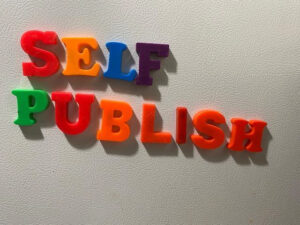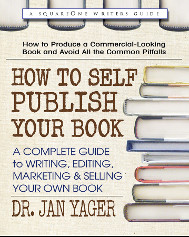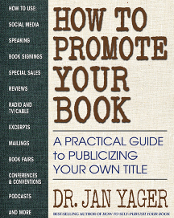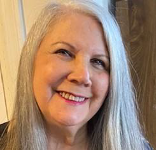Tuesday, August 8, 2023
by Jan Yager
 How many authors admit their second manuscript under contract was rejected after their first book with a major or even an indie commercial house was accepted and published? I do in my new memoir, Looking Backward, Going Forward: Reflections on a Writer’s Life. Here is an excerpt from that section in Chapter 12, “Raising a Family, Teaching, Writing, Publishing, Nashville, and Back to Connecticut:”
How many authors admit their second manuscript under contract was rejected after their first book with a major or even an indie commercial house was accepted and published? I do in my new memoir, Looking Backward, Going Forward: Reflections on a Writer’s Life. Here is an excerpt from that section in Chapter 12, “Raising a Family, Teaching, Writing, Publishing, Nashville, and Back to Connecticut:”
“Simon & Schuster’s publicity department sent an advance review copy (ARC) of the final book [When Friendship Hurts] to Publishers Weekly and Library Journal, reminding them of their reviews of my previous book, Friendshifts. We soon learned the wonderful news that When Friendship Hurts was going to get rave reviews in both major trade publications.
 On the heels of such a positive first manuscript [When Friendship Hurts], I was offered, and accepted, a second deal for a book on work and friendship that was going to be called Workships.
On the heels of such a positive first manuscript [When Friendship Hurts], I was offered, and accepted, a second deal for a book on work and friendship that was going to be called Workships.
The fact that Simon & Schuster did not publish the second book is a cautionary tale for all writers.
First, never assume because things go well with your first deal that it will go just as well for deal number two or future deals. Second, if you believe in your book, even if it is turned down, do not give up on it! I did not and Workships was published successfully by my own company under the title Who’s That Sitting at My Desk? Workship, Friendship, or Foe? (2004). In addition to excellent reviews, it went on to get translated into several languages including Dutch, Vietnamese, and Chinese, to name a few.
Third, you must be resilient to make it in the book world. I still remember the moment my editor told me over the phone they were rejecting my second book. I could feel something change in my heart. The next night, I had to ask Fred [my husband] to take me to the hospital. It turned out, I had atrial fibrillation, what is also known as Afib. It’s an irregular heartbeat that, untreated, can lead to a stroke. Fortunately, I have been able to treat my Afib with medication. I was only fifty-four, quite young to get Afib, since it usually afflicts those who are sixty or up. Stress is a contributing factor.*
*Excerpted from Looking Backward, Going Forward by Jan Yager. All rights reserved.
 Photo credit: Jan Yager
Photo credit: Jan YagerSo, if this ever happens to you, if you have good reason to believe your manuscript is acceptable, instead of putting the rejected manuscript in a drawer, you have options. You can try to sell it to another house which, unfortunately, is quite difficult since most books are sold at one point in time to a specific editor and house. You can give that a try, on your own or through your agent, if you have one.
Alternatively, as I shared in the previous excerpt from my memoir, you can self-publish your book. The key is this: If your manuscript is well-done and worthy of publication, commit to getting it published.
You might ask why publishers reject second manuscript. The “unacceptable manuscript clause” is one of the most controversial clauses in every major or indie commercial publishing company contract. After all, what is an unacceptable manuscript? The unspoken “truth” is that some publishers hide behind that clause other reasons for rejecting a second manuscript. I am not saying any or all of these reasons pertain to me in particular, or even to you, if this situation ever happens to you. However, from my decades in this book business as well as from interviews/surveys with 100+ authors, here are some of those reasons:
- Sales on the first book were disappointing
- A mandate has been issued by the publisher to get rid of all authors selling less than a certain number of books (e.g. less than 50,000 or 100,000 copies)
- The author’s personality does not mesh with the editor
- The editor who signed up the book has left the company and the replacement either does not like the topic or new manuscript or wants to build his/her own list from scratch
- Especially for nonfiction books, the market has changed in the time since signing up the book to its completion meaning there are too many books on that subject so the book is likely to be lost in the shuffle (or, in time, the interest in a topic has waned)
- The publisher is having financial challenges and has been asked to cut down on the number of forthcoming books to save money on related costs including printing and/or promotion
- The legal department has vetted the manuscript suggesting a pass on publishing
If you have the rights to the rejected manuscript, you can go forward with selling it to another publisher. (Check your contract or, if you have a literary agent, ask your agent to verify the terms of your contract about what happens to your manuscript if it is rejected as “unacceptable.” If there was an advance, do you get to keep it or do you have to pay it back?)
 If you have the rights to the rejected manuscript and decide to self-publish, consider reading my step-by-step guide, How to Self-Publish Your Book (Square One).
If you have the rights to the rejected manuscript and decide to self-publish, consider reading my step-by-step guide, How to Self-Publish Your Book (Square One).
Finally, when your book is finished and available, whether you self-publish or you sold it to another commercial house, commit to promoting it! There’s that famous expression – “Living well is the best revenge” which, according to the “Quote Investigator®, was first popularized in 1640 by George Herbert in his compilation of Outlandish Proverbs, published in London. Promoting your book is a recommended way to increase the likelihood that your book will be successful, once it does see the light of print (or e-book or audiobook editions). Unfortunately, there are no guarantees that promotion will lead to a big bestseller but failing to promote it may ensure obscurity. Check out my book, How to Promote Your Book, published by Square One, for a detailed guide to book promotion including how to land those library and bookstore author events that can generate that all important W-O-M – Word of Mouth.
detailed guide to book promotion including how to land those library and bookstore author events that can generate that all important W-O-M – Word of Mouth.
About the Author
 Jan Yager, Ph.D. is the other of 50+ award-winning books, translated into 35 languages, including When Friendship Hurts (Simon &Schuster); Victims (Scribner, 1978; with a new introduction and updated statistics, Hannacroix Creek Books, 2023); Essentials of Victimology (Aspen Publishing, 2022); Friendgevity; Looking Backward, Going Forward: Reflections on a Writer’s Life; 365 Daily Affirmations for Happiness; How to Promote Your Book (Square One Publishers, 2023); the thrillers On the Run, Untimely Death, Just Your Everyday People, and other titles. Jan has been published by such major houses as Simon & Schuster, Scribner, Doubleday, and Grove Press as well as self-published through her own company, Hannacroix Creek Books, Inc. Over the years, she has been interviewed on such major talk shows as TODAY, Good Morning America, CBS Mornings, CBS Sunday Morning, NPR, and others.
Jan Yager, Ph.D. is the other of 50+ award-winning books, translated into 35 languages, including When Friendship Hurts (Simon &Schuster); Victims (Scribner, 1978; with a new introduction and updated statistics, Hannacroix Creek Books, 2023); Essentials of Victimology (Aspen Publishing, 2022); Friendgevity; Looking Backward, Going Forward: Reflections on a Writer’s Life; 365 Daily Affirmations for Happiness; How to Promote Your Book (Square One Publishers, 2023); the thrillers On the Run, Untimely Death, Just Your Everyday People, and other titles. Jan has been published by such major houses as Simon & Schuster, Scribner, Doubleday, and Grove Press as well as self-published through her own company, Hannacroix Creek Books, Inc. Over the years, she has been interviewed on such major talk shows as TODAY, Good Morning America, CBS Mornings, CBS Sunday Morning, NPR, and others.
For more on Jan, visit www.drjanyager.com/about.